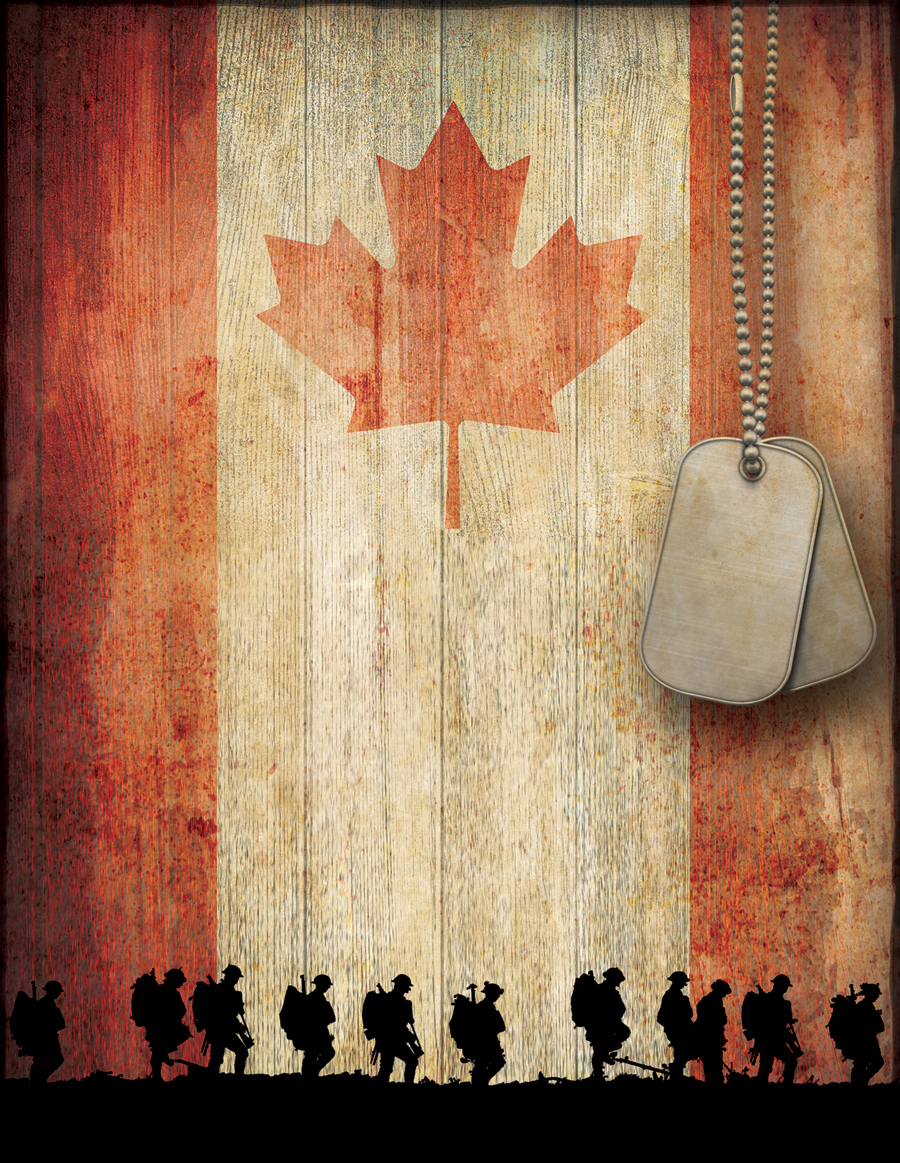Learning about each branch is a great way for civilians to gain a greater understanding of the efforts and sacrifices the men and women protecting their freedoms make each and every day.
Each year on November 11, Veterans Day, Canadians pause in a silent moment of remembrance for the men and women who have served and continue to serve their country during times of war, conflict and peace. Known as Remembrance Day, the day honors the brave people who fought for Canada in the First World War (1914-1918), the Second World War (1939-1945) and the Korean War (1950-1953), as well as those who have served since then.

More than 1.5 million Canadians have served in the military. Tragically, more than 100,000 of those brave men and women have died.
The Canadian Armed Forces, or CAF, make up the government’s largest federal department. The CAF serves on land, in the air and on the sea, and branches include the Canadian Army, the Royal Canadian Air Force and the Royal Canadian Navy. Each branch serves a unique role. Learning about each branch is a great way for civilians to gain a greater understanding of the efforts and sacrifices the men and women protecting their freedoms make each and every day.
Canadian Army
Established in 1867.
The largest element of the CAF, the Canadian Army is the land component of the country’s military. Soldiers in the Canadian Army are trained at bases, armouries and training centers throughout Canada. It’s these training sessions that prepare Canadian soldiers for a wide range of scenarios, including operations at home and abroad. There are 23,000 full-time soldiers in the Regular Force and an additional 17,000 part-time, volunteer soldiers in the Reserve Force.
Royal Canadian Air Force
Established April 1, 1924.
The Royal Canadian Air Force protects Canadian and North American airspace in partnership with the United States. The RCAF provides the Canadian Armed Forces with relevant, responsive and effective air power to meet present and future defence challenges. Among its many roles, the RCAF provides control and surveillance of Canadian territory, airspace and maritime approaches while also conducting search and rescue missions to aid those in distress anywhere in Canada. Those are significant responsibilities, as Canada has the second largest territory and airspace in the world. The RCAF includes 12,000 Regular Force personnel and 2,100 Air Reserve personnel.
Royal Canadian Navy
Established May 4, 1910.
The mission of the Royal Canadian Navy and its leader is to lead the strategic development and generation of combat-capable, multi-purpose maritime forces while providing advice and support to maritime operations. The Maritime Forces Pacific, Maritime Forces Atlantic and Naval Reserve are directly responsible to the Commander of the Royal Canadian Navy. The Maritime Forces Pacific and Maritime Forces Atlantic generate, maintain and sustain an armed capability to guard Canada’s Pacific and Atlantic maritime approaches. Maritime Forces Atlantic, which employs more than 5,000 military and 2,000 civilian personnel, is headquartered in Halifax and home to 18 ships and submarines. Maritime Forces Pacific, headquartered in Esquimalt, British Columbia on Vancouver Island, is home to 15 ships and submarines and employs around 4,000 military and 2,000 civilian personnel.
Canadian military personnel play an invaluable role, both in Canada and abroad.
Learn more about the Roles of the U.S. Military.
Article compliments of a Metro Creative. TF18B487
About the Author
Discover more from Courageous Christian Father
Subscribe to get the latest posts sent to your email.



